VALE Allan Moffat
Australian motorsport has lost one of its greatest and most influential drivers in Allan Moffat. The man who brought professionalism to Australian motorsport and was on the “blue” side of the Ford vs Holden rivalry for more than a decade passed away peacefully on Saturday, 22 November; less than a fortnight after his 86th birthday.
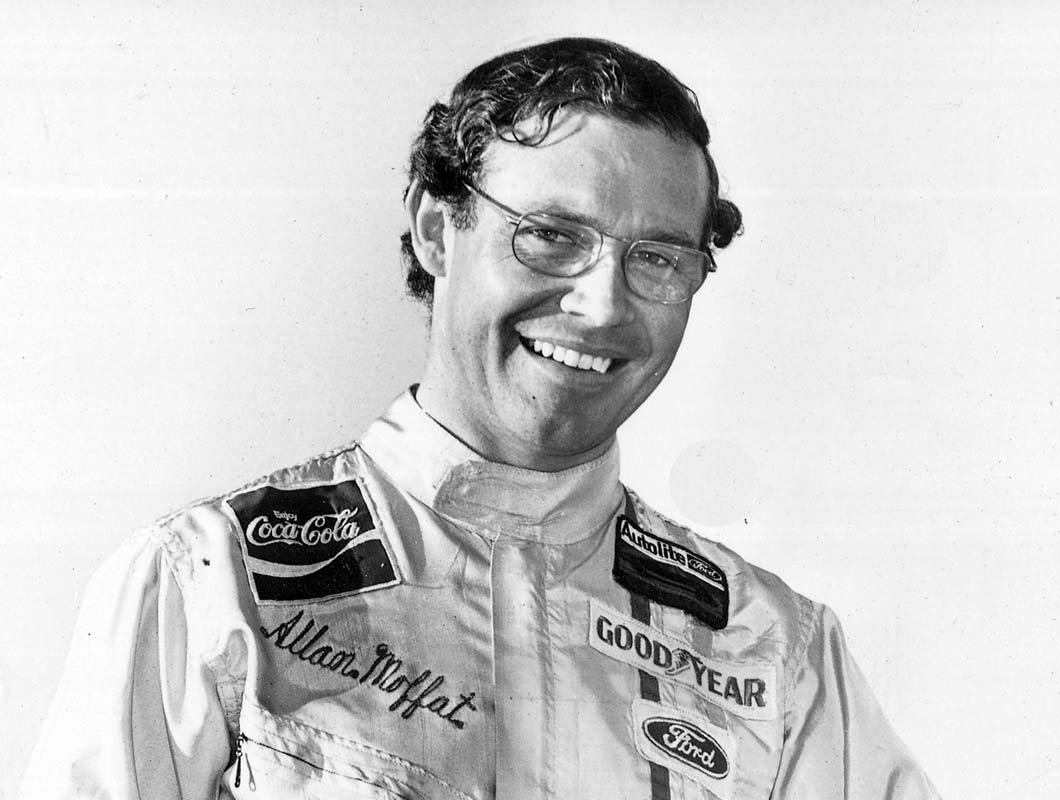
A statement issued by the Moffat family on 22 November is as follows:
It is with deep sadness that the Moffat family announces the passing of Allan Moffat OBE, who died peacefully at 11:05 this morning, surrounded by his loved ones, after a long and courageous battle with Alzheimer’s disease.
Allan Moffat was not only one of Australia’s most successful and admired motor racing drivers, but a towering figure whose influence shaped the nation’s motorsport identity for more than five decades. Revered for his skill, tenacity, and exceptional professionalism, Moffat’s legacy is etched into Australian sporting history.
Born in Canada and proudly embraced by Australia, Moffat became a dominant force domestically and internationally. His career highlights include:
- Four Bathurst 1000 victories (1970, 1971, 1973, 1977), including the iconic 1977 1–2 formation finish.
- Four Australian Touring Car Championships (1973, 1976, 1977, 1983).
- Success on the international stage, including competing in the Trans-Am Series, IMSA, and numerous global touring car events.
- Long-standing partnerships with Ford and Mazda, contributing to landmark eras in Australian touring car competition.
His contribution to sport was formally recognised when he was appointed Officer of the Order of the British Empire (OBE). Moffat is also honoured as an inductee of both the Supercars Hall of Fame and the Australian Sports Hall of Fame, cementing his place among the nation’s greatest athletes.
Beyond racing, Allan Moffat dedicated his later years to advocacy work. As a Patron of Dementia Australia, he lent his voice to raising awareness and supporting families affected by the disease. In his honour, the Allan Moffat Foundation continues this important work. His family and friends encourage fans to support the Foundation so that others living with Alzheimer’s can receive the care, support, resources, and hope they deserve.
Allan Moffat leaves behind an extraordinary legacy, not only as a champion driver, but as a respected mentor, advocate, and friend to many. He will be remembered for his unwavering passion, competitive spirit, and the profound impact he had on motorsport in Australia and around the world.
The Moffat family asks for privacy during this time as they grieve the loss of their beloved father, grandfather, and friend.
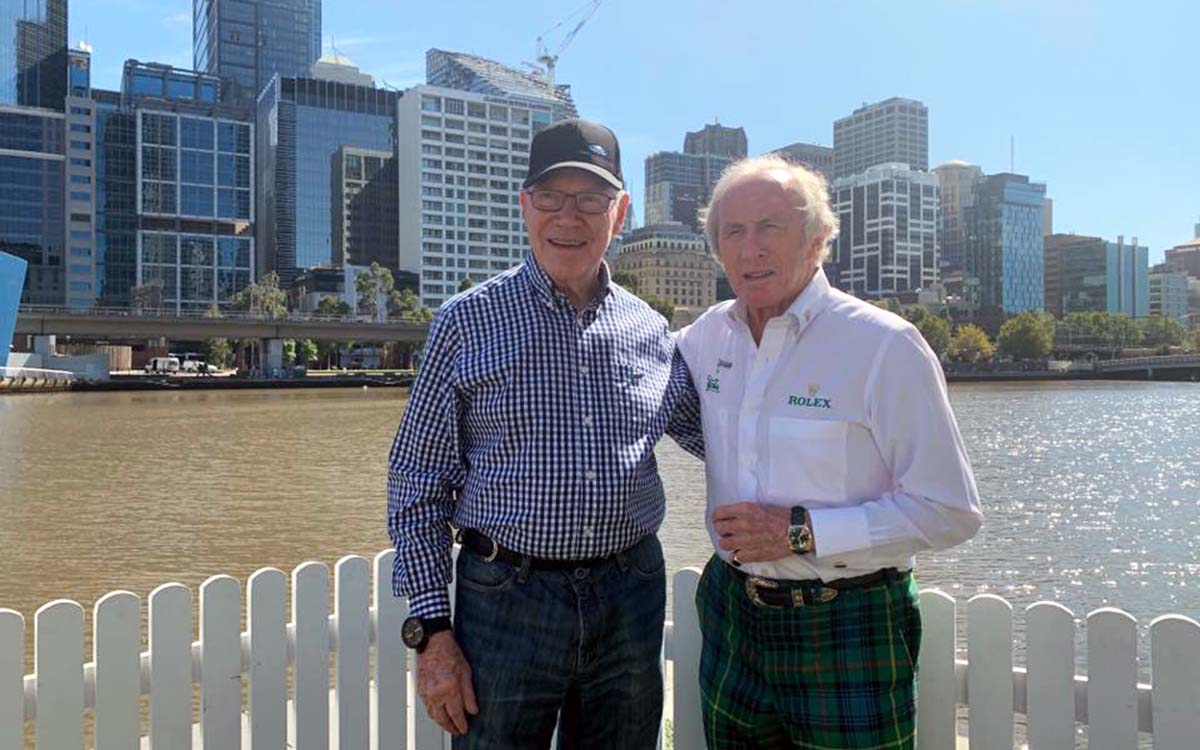
Moffat went public with his diagnosis of Alzheimer’s disease in 2019, and spent his last few years in an aged care facility. Along with professional staff, Moffat’s care was supported by family and close friends, like his former manager Phil Grant, plus old team mates and rivals like Fred Gibson and Larry Perkins.
In 2020, Moffat joined Sir Jackie Stewart OBE as a Dementia Australia Ambassador, hoping that speaking up about his own experience with Alzheimer’s would encourage others to seek support, whether for themselves or a loved one. Stewart’s wife, Helen, was diagnosed with frontotemporal dementia in 2014.

Born in Saskatoon, Saskatchewan, Canada, on 10 November, 1939, Moffat first came to Australia with his parents (his father was an executive with Massey Ferguson) in 1956. Earlier that decade, the Moffat family had lived in South Africa, where the teenaged Allan got his first experience tinkering on cars – appropriately with a Ford.
By the early 1960s, Moffat was in university and working at Volkswagen Australia. His first taste of motorsport came in 1962 behind the wheel of a Triumph TR3A. Returning to Canada soon after, Moffat would alternate his time between the two countries for the next few years, but continued to race, both here and overseas.

Success in Australia with a Lotus Cortina in 1964 and ’65 must have caught the eye of Team Lotus, as Moffat landed a drive with them for the inaugural year of the Trans American Sedan Championship (aka Trans-Am) in 1966. Moffat’s win at the Bryar 250 that year contributed to Ford’s runner-up finish in the Under 2-Litre class behind Alfa Romeo (this was the period in Trans Am where only manufacturers received championship points, not drivers).
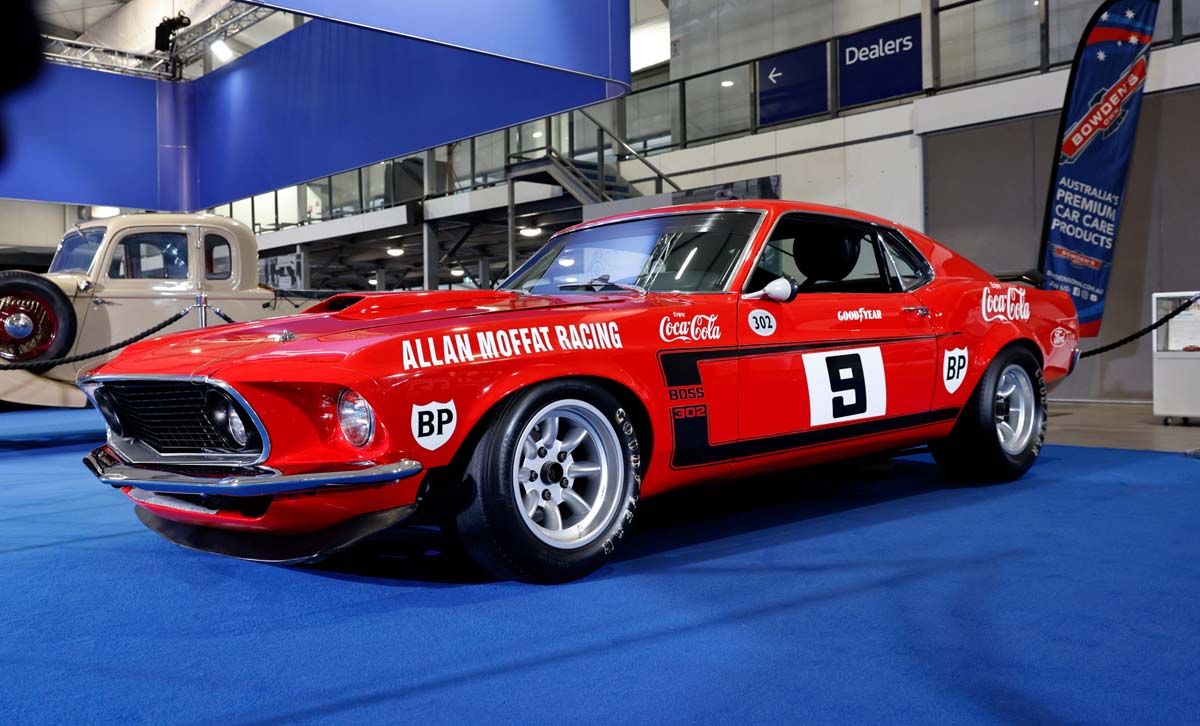
Continuing to make his mark in Trans-Am in the years that followed, Moffat also made some strong ties with Ford, which explains how he was able to secure one of just seven Trans-Am-spec Mustangs built for the series by Bud Moore Engineering. That car was covered in depth in David Hassall’s book The Boss: The Inside Story of Allan Moffat’s Trans-Am Mustang. As Hassall notes, Moffat won 78 races from 188 starts in the car – a winning percentage of just over 40 per cent. Podiums take that to 64 per cent.
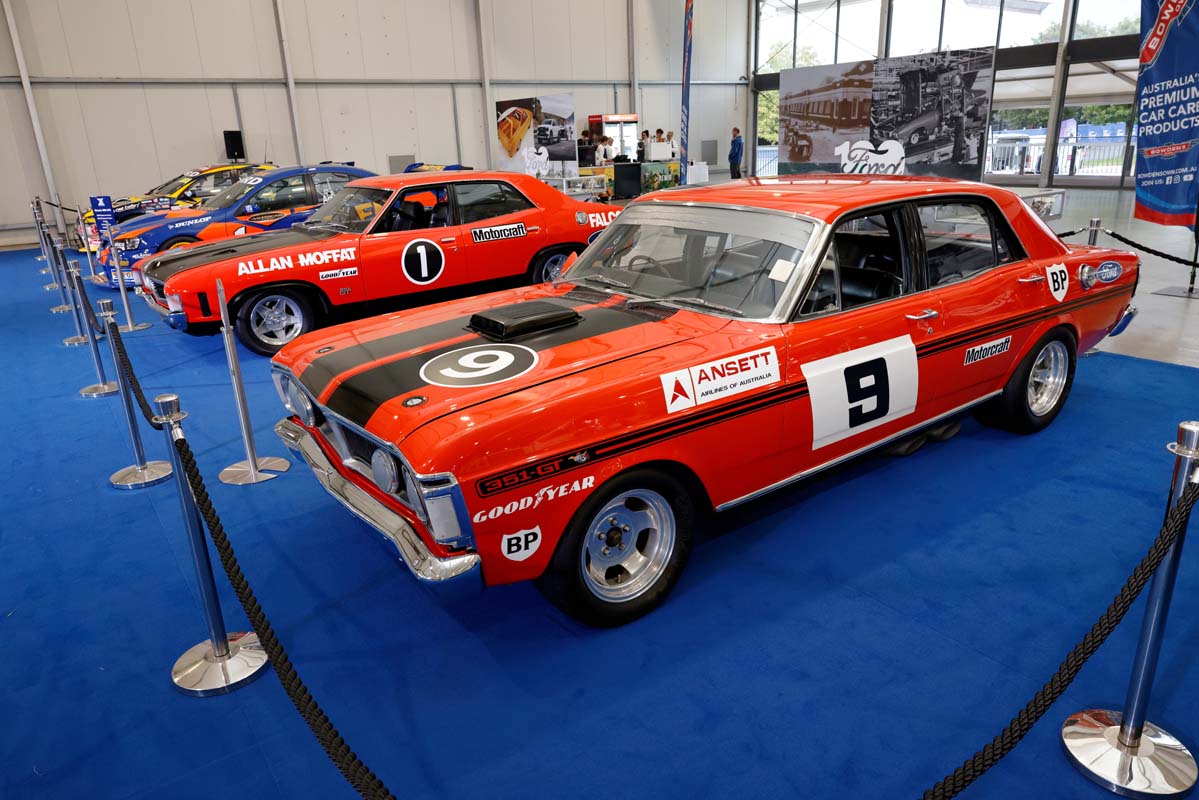
As good as his results in the Trans-Am Mustang were, it’s Moffat’s achievements in production car racing, specifically the annual Bathurst enduro, for which he is best remembered. Making his Bathurst debut in an XW Falcon GT-HO for the Ford Australia factory team in 1969, Moffat finished fourth, then achieved back-to-back wins in 1970 and ’71 – in a GT-HO Phase II and Phase III. The well-known ‘Supercar Scare’ of 1972 meant a GT-HO Phase IV intended for Moffat never saw the racetrack, so he persevered with the Phase III for another year before switching to the XA Falcon GT hardtop in 1973, when he won his third Bathurst.

After Ford withdrew their factory team, Moffat relied on a dealer-funded campaign, with which he achieved his fourth, and possibly greatest Bathurst win in 1977. The helicopter footage of the Moffat/Ickx and Bond/Hamilton cars running side-by-side down Conrod Straight, and the ‘1-2’ finish that followed, remains one of the most iconic Bathurst images of all time.
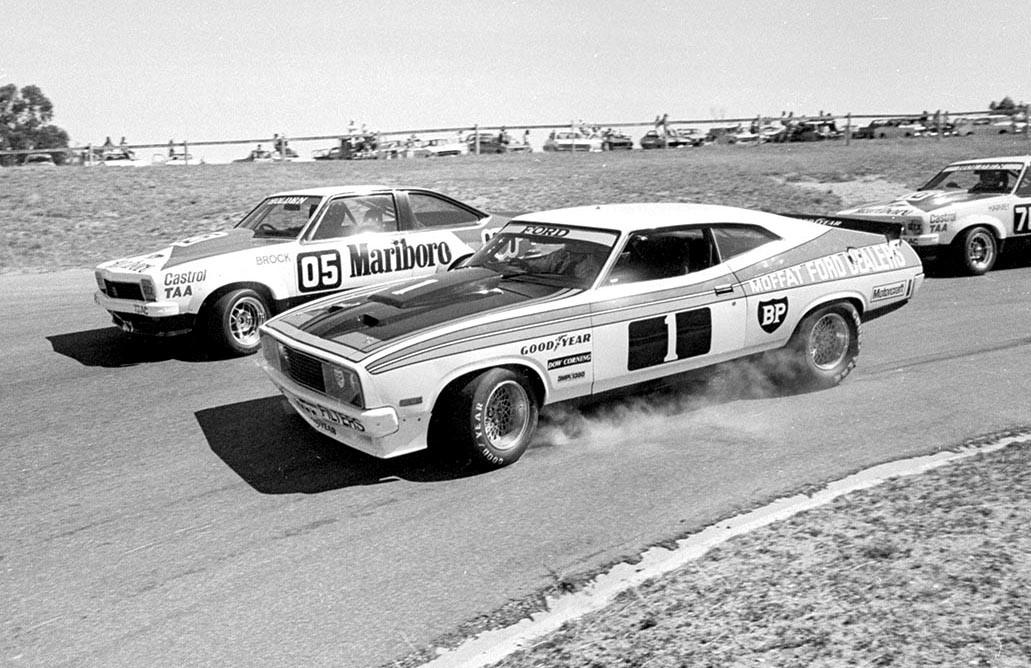
A frustrating few years in XC and XD Falcons followed, with four straight DNFs at Bathurst. That led Moffat to switch to the Mazda RX-7. While he would win another ATCC crown in the Mazda – his fourth overall – he couldn’t replicate that success at Bathurst. A second place in 1983 would be his best result with the rotary.
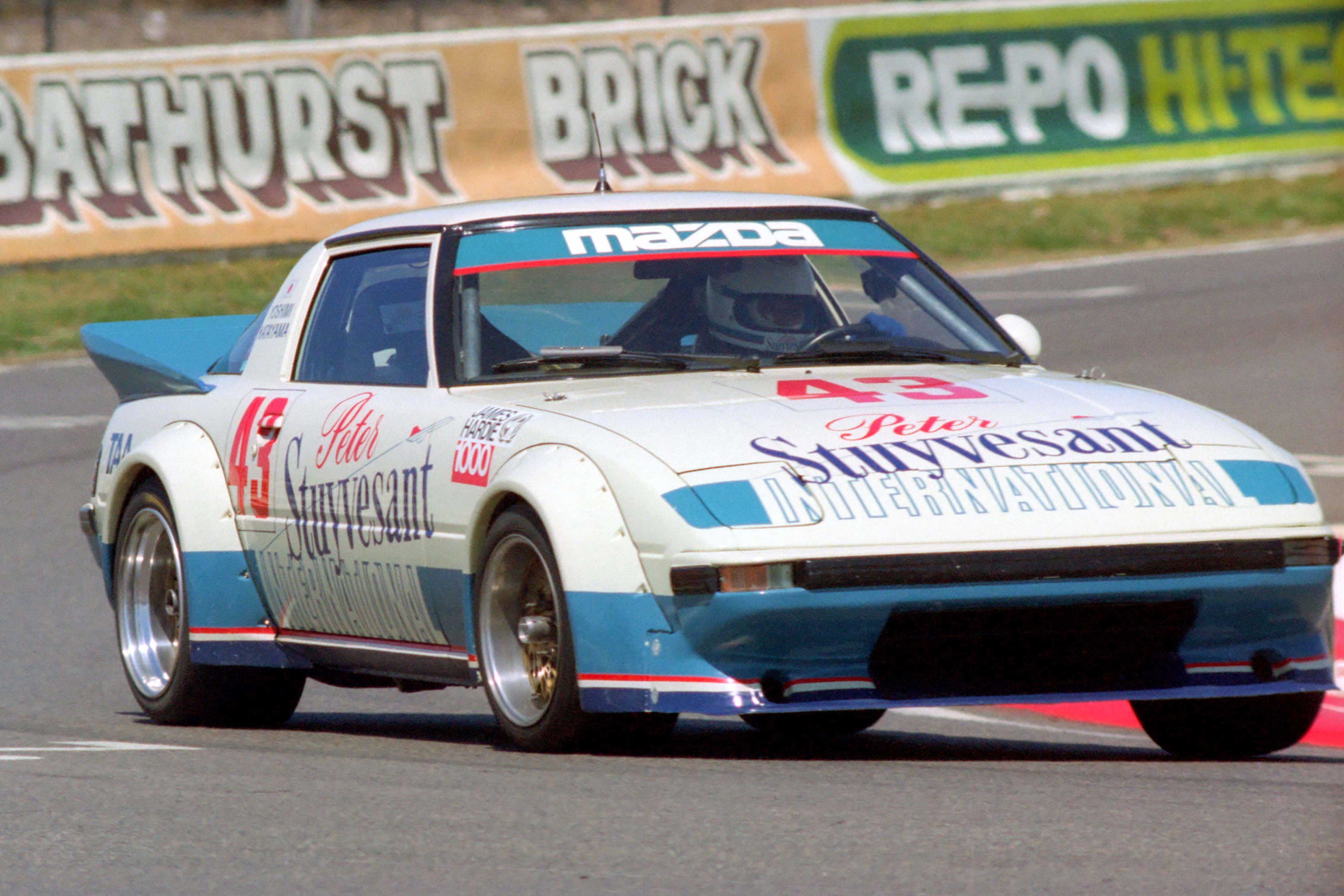
The famous pairing with former rival Peter Brock – the ‘white hat’ to Moffat’s ‘black hat’ – came in the European Touring Car Championship in 1985. The Brock/Moffat combo also raced in the FIA Touring Car Championship, Spa 24 Hours, and at Bathurst in 1986.
After this brief stint with Holden, Moffat returned to Ford with the Sierra RS500. Two Bathurst campaigns in the Sierra ended without a result, but Moffat did win the Sandown 500 in 1988. A year later, Moffat made his final competitive starts – locally at Sandown and internationally at Fuji - honouring a pledge he’d made to wife Pauline not to race after he turned 50.

As a team, Allan Moffat Enterprises continued to have a presence in the ATCC until lack of sponsorship, the bane of many racers and team owners, saw them withdraw at the end of the 1996 ATCC/V8 Supercars season. The Moffat name returned to racing in the new millennium, with Allan’s eldest son, James, driving for various teams, including DJR and GRM, from 2011 to 2017. He’s been a regular co-driver in the enduros for Tickford Racing since.
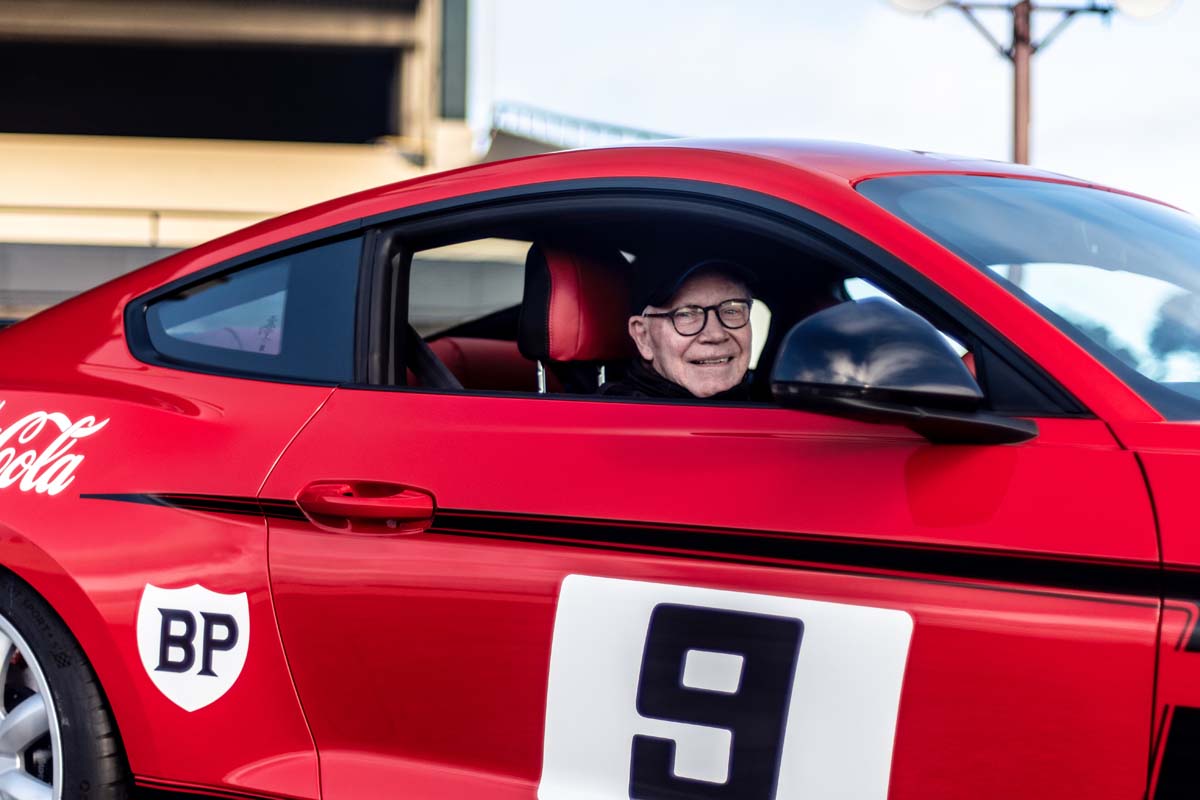
After stepping away from driving, the senior Moffat next made his mark as a motorsport commentator and brand ambassador for various companies, most notably Ford. More recently, Moffat lent his support to a series of limited-edition Mustangs produced by Tickford. The first of these, offered in 2017, was a 77-unit run of cars with livery inspired by the famous 1977 Bathurst 1-2 finish. The second, in 2019, drew inspiration from Moffat’s Trans-Am Mustang.

An Australian citizen since 2004 (where Peter Brock read the citation), Moffat’s achievements in motorsport were first recognised with an OBE in 1978. Induction into the Supercars Hall of Fame came in 1999, followed by the Australian Motor Sport Hall of Fame in 2016 and the Sport Australia Hall of Fame in 2018. A time of writing, a tribute to Moffat was being planned for this year’s Supercars Grand final in Adelaide on 27-30 November.
Echoing the words of the Moffat family, Supercars Chief Executive James Warburton issued the following statement:
On behalf of the entire Supercars community, we want to express our deepest condolences following the passing of Allan Moffat OBE — one of the true giants of Australian motorsport.
Allan was a pioneer, a champion and an icon whose impact on our sport is impossible to measure. His record speaks for itself: four Australian Touring Car Championships, four Bathurst victories, six Sandown wins, and more than three decades of extraordinary achievement across Australia and around the world. He was a dominant force during one of the most competitive eras in touring car racing, and his legendary rivalry — and friendship — with Peter Brock defined a generation.
But Allan’s legacy reaches far beyond the racetrack. He brought a new level of professionalism to the sport, transforming the role of sponsorship and team management in ways that shaped the modern era of Supercars. His influence can still be felt in the paddock today.
Inducted into the Supercars Hall of Fame in 1999, the Australian Motor Sport Hall of Fame in 2016, and the Sport Australia Hall of Fame in 2018, Allan’s contribution to motorsport has long been recognised at the highest level.
Today, we remember Allan not only for his remarkable career, but for the passion, spirit and determination he carried into everything he did. He inspired generations of drivers, engineers, teams and fans, and his place in Australian sporting history is everlasting.
Our thoughts are with Allan’s family, friends and all who knew and admired him. The sport he helped build will forever carry his imprint.
Allan Moffat was one of the greatest we will ever see. He will be deeply missed.













